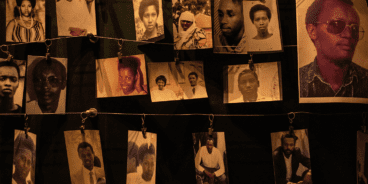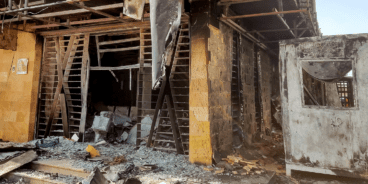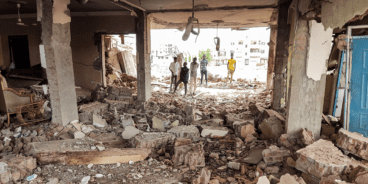
Statement on the 20th Commemoration of the Genocide in Rwanda
Today the international community will commemorate the twentieth anniversary of the start of the Rwandan genocide. Over the course of a 100 day period between April and July of 1994 at least 800,000 Rwandans were murdered in the fastest genocide of the twentieth century. The United Nations (UN) and its Member States failed to take early action to halt the incitement of ethnic hatred against the Tutsis and prevent the impending genocide. This was despite clear warnings from Mr. B. W. Ndiaye, UN Special Rapporteur on Extrajudicial, Summary or Arbitrary Executions, in 1993 and Gen. Roméo Dallaire, the Force Commander of the UN peacekeeping mission in Rwanda, three months before the start of the genocide.
The horrific events that transpired during those 100 days later served as the impetus for all UN Member States to unanimously commit themselves at the World Summit in 2005 to the Responsibility to Protect (R2P) populations from genocide, war crimes, ethnic cleansing and crimes against humanity. In doing so, states acknowledged that the world should no longer tolerate political indifference and inaction whenever and wherever populations face an imminent risk of mass atrocity crimes.
Since 2005 UN Member States have taken important steps to strengthen the Responsibility to Protect at both the international and domestic level. These initiatives include the creation of a Global Network of R2P Focal Points and the development of domestic and regional capacities to prevent genocide and other mass atrocity crimes. Since 2011 the UN Security Council has also invoked R2P when authorizing measures to protect civilians in Côte d’Ivoire, Libya, South Sudan, Mali, Central African Republic and elsewhere.
Despite these efforts, we continue to witness mass atrocity crimes committed in Syria, Sudan, Burma/Myanmar, Democratic Republic of the Congo and other countries. The effectiveness of the UN in responding to mass atrocity situations is sometimes still held prisoner to partisan political interests and/or the veto prerogative of the permanent members of the UN Security Council.
Preventing mass atrocity crimes is every government’s responsibility. States should continue to build support for R2P and ensure that it is consistently and effectively implemented in practice. Government commitments should include:
-
- Appointing a national R2P Focal Point;
- Supporting the development of a practical “code of conduct” for voluntary restraint on the use of the veto bythe permanent members of the UN Security Council in mass atrocity situations;
- Publicly affirming that the prevention of mass atrocity crimes is a national priority and developing a nationalaction plan to strengthen domestic and international capacities to prevent mass atrocity crimes;
- Pursuing justice and accountability by ratifying relevant legal instruments, including the Convention on the Prevention and Punishment of the Crime of Genocide and the Rome Statute of the International Criminal Court;
- Continuing to support the UN Office of the Special Advisers on the Prevention of Genocide and the Responsibility to Protect and vigorously support the Secretary-General’s implementation of the Rights Up Front initiative.
As we reflect upon the tragedy of the genocide in Rwanda, Dr. Simon Adams, Executive Director of the Global Centre for the Responsibility to Protect, noted: “The best way to honor the memory of those murdered in 1994 is to build a world where the international community permits no people to stand alone when threatened by genocide. The occasion of the twentieth commemoration of the Rwandan Genocide compels us to reflect, but also to act to uphold our collective responsibility to protect.”
Related Content


Atrocity Alert No. 352: Sudan, Afghanistan and International Day for Countering Hate Speech
